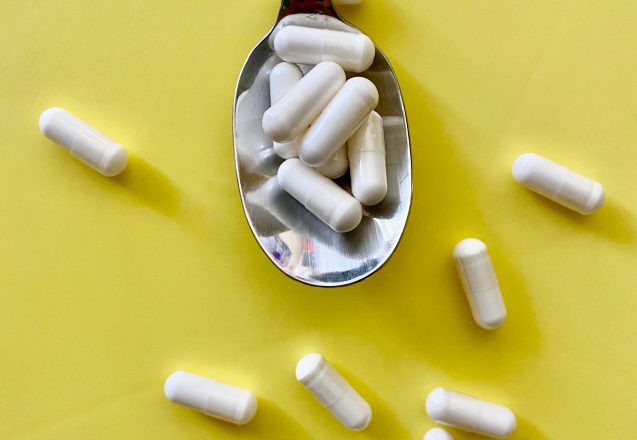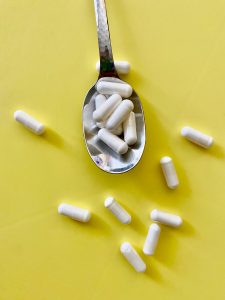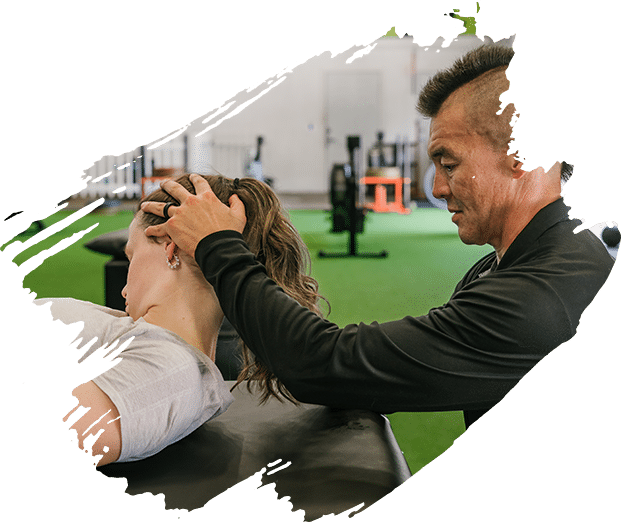Stretching For Golfers Mobility Exercises To Enhance Swing Mechanics
 Being strong isn't going to get you the most distance. You need mobility and flexibility. That's why stretching exercises are so valuable for golfers. They enhance swing mechanics to boost your power. Golfers in Lakeland, FL, often look for ways to improve their game. Including specific stretches in their workouts helps do just that. Besides increasing the range of motion and boosting power and accuracy, stretching exercises can help reduce the chances of injury and keep you playing longer by avoiding muscle pulls that take time to heal.
Being strong isn't going to get you the most distance. You need mobility and flexibility. That's why stretching exercises are so valuable for golfers. They enhance swing mechanics to boost your power. Golfers in Lakeland, FL, often look for ways to improve their game. Including specific stretches in their workouts helps do just that. Besides increasing the range of motion and boosting power and accuracy, stretching exercises can help reduce the chances of injury and keep you playing longer by avoiding muscle pulls that take time to heal.
Stretching before you play can prepare your muscles.
If you want to improve your golf game, you need to stretch three different times. The first time is during your daily workout. Include them in each session. Without consistent stretching, you won't increase your range of motion and won't get the results you want. You should also stretch before you play. Use dynamic stretches for pre-play stretching. After the game, while your muscles are warm, you can do static stretching that improves flexibility and helps prevent or relieve soreness.
Use dynamic stretches before golf and in daily routines.
Do these stretches every workout and before a round of golf. A few good ones are hip hinges, side bends, standing cat/cow, standing bicycle, and spinal rotation. Your stretches should focus on the movements you make while golfing. They need to stretch and warm the muscles in the quads, back, hamstrings, hips, wrists, shoulders, and core muscles.
Take time to stretch after a round of golf.
You'll improve your recovery and be ready more quickly for your next round of golf when you do these stretches. Riding in the cart and golf set-up position can take a toll on your hip flexors by shortening them. You'll regain their length at the end of the round by doing hip flexor lunge stretches. Put one knee on the ground with that leg extended behind. The other foot should be flat on the ground, the knee bent at a 90-degree angle, your body straight, and your shoulders back. Hold and then switch legs. Hamstring, back, upper body, and hip stretches are also beneficial.
- Place your hands on a sturdy object like a golf cart or club wall to start an upper body stretch. Your feet should be shoulder-width. Step back, hinging at the hips until you feel the stretch. Do it gently.
- Just like regular hip flexor lunges, side lunges are also necessary after you play. Stand with feet hip-width apart. Step to the side with one foot and slowly bend your knee until you feel your inner thigh stretch.
- Warming up with a spinal rotation is simple. Stand with feet hip-width apart and hands behind your ears. Twist your body to one side, bringing your elbow to that side as far as possible. Then, twist to the other side.
- Our trainers can help you develop a program of stretches designed to improve the areas where you need extra work and maintain range of motion in all areas. Always check with your healthcare professional before starting any exercise program.
For more information, contact us today at Habitat Health & Fitness



 Some foam roll before exercise and appreciate how well it loosens and warms muscles. However, the real benefits of foam rolling are the techniques used after working out to speed recovery. Foam rolling is a form of self-massage that works the connective tissue. Some foam rollers have smooth surfaces. Soft projectiles are on others. The ones with projectile target trigger points in the myofascial tissue and muscles.
Some foam roll before exercise and appreciate how well it loosens and warms muscles. However, the real benefits of foam rolling are the techniques used after working out to speed recovery. Foam rolling is a form of self-massage that works the connective tissue. Some foam rollers have smooth surfaces. Soft projectiles are on others. The ones with projectile target trigger points in the myofascial tissue and muscles.
 Many articles and much attention are paid to heart health, protecting your brain and lungs, and the importance of exercise, but little is mentioned about the importance of gut health and its effect on your well-being. It may be discussed in commercials on laxatives or mentioned in yogurt commercials promoting gut health, but aside from the discussion on constipation, diarrhea, and the occasional upset stomach, the major role it plays in your immunity, nutrition, and mood is seldom mentioned.
Many articles and much attention are paid to heart health, protecting your brain and lungs, and the importance of exercise, but little is mentioned about the importance of gut health and its effect on your well-being. It may be discussed in commercials on laxatives or mentioned in yogurt commercials promoting gut health, but aside from the discussion on constipation, diarrhea, and the occasional upset stomach, the major role it plays in your immunity, nutrition, and mood is seldom mentioned.
 Sometimes, it seems like there isn't enough time or energy to get everything done. I hear that a lot in Lakeland, FL. Some people look to energy drinks high in sugar, but there are healthier natural remedies that can boost your energy without the sudden drop that occurs when you consume sugary food and drinks. You may not be able to increase your actual time, but you get more done in a shorter period when you're moving faster and have the boost of power left near the end of the day.
Sometimes, it seems like there isn't enough time or energy to get everything done. I hear that a lot in Lakeland, FL. Some people look to energy drinks high in sugar, but there are healthier natural remedies that can boost your energy without the sudden drop that occurs when you consume sugary food and drinks. You may not be able to increase your actual time, but you get more done in a shorter period when you're moving faster and have the boost of power left near the end of the day.
 When people in Lakeland, FL, ask about supplements for muscle growth and recovery, I tell them to check their diet first. If your meals aren't nutritious, no matter how many supplements you take, you won't get the results you want. There are situations where a supplement can help. Even in those cases, proceed with caution and follow directions carefully. Creatine can help build muscles but may interact with other herbal supplements and caffeine. It can cause water retention in the muscles and weight gain and increase the risk of stroke.
When people in Lakeland, FL, ask about supplements for muscle growth and recovery, I tell them to check their diet first. If your meals aren't nutritious, no matter how many supplements you take, you won't get the results you want. There are situations where a supplement can help. Even in those cases, proceed with caution and follow directions carefully. Creatine can help build muscles but may interact with other herbal supplements and caffeine. It can cause water retention in the muscles and weight gain and increase the risk of stroke.
 Your core muscles are those in the front and back of your trunk. They keep your body erect, help maintain balance, and provide other functions, like protecting internal organs. To be your healthiest, you need to keep these muscles strong. The best core workouts improve both abdominal and back muscles. They help your posture, so they increase your energy. Good posture means your body doesn't have to work as hard to stay erect.
Your core muscles are those in the front and back of your trunk. They keep your body erect, help maintain balance, and provide other functions, like protecting internal organs. To be your healthiest, you need to keep these muscles strong. The best core workouts improve both abdominal and back muscles. They help your posture, so they increase your energy. Good posture means your body doesn't have to work as hard to stay erect.
 Like many cities, Lakeland, FL, is a busy place that can be stressful. Enduring stress for too long can zap you of all your motivation and strength. When that occurs, you need to relax and energize. Relaxation can be passive or active. One active form of relaxation is walking, especially near greenery or by water, as you absorb the surroundings. It could be dancing, which allows your brain to focus on enjoying the movement. Passive relaxation is sedentary. It could be resting, watching TV, or something more lasting, such as using breathing techniques and meditation where you relax both the body and the mind.
Like many cities, Lakeland, FL, is a busy place that can be stressful. Enduring stress for too long can zap you of all your motivation and strength. When that occurs, you need to relax and energize. Relaxation can be passive or active. One active form of relaxation is walking, especially near greenery or by water, as you absorb the surroundings. It could be dancing, which allows your brain to focus on enjoying the movement. Passive relaxation is sedentary. It could be resting, watching TV, or something more lasting, such as using breathing techniques and meditation where you relax both the body and the mind.
 Losing weight can be difficult. There are various ways to approach it. Some people choose a traditional route of calorie counting. Others focus on eating healthier and cutting out food with added sugar and highly processed food. A third technique is carb counting. Calorie counting and carb counting are very similar. Many high-calorie foods, like those with added sugar, such as pastry, and products made with white flour, are often high in calories and carbs.
Losing weight can be difficult. There are various ways to approach it. Some people choose a traditional route of calorie counting. Others focus on eating healthier and cutting out food with added sugar and highly processed food. A third technique is carb counting. Calorie counting and carb counting are very similar. Many high-calorie foods, like those with added sugar, such as pastry, and products made with white flour, are often high in calories and carbs.
 I commend people in Lakeland, FL, who push hard and exercise regularly. It's impressive when you stick with a schedule and keep your promise to get into shape or fine-tune your body when you're already fit. That doesn't mean you won't benefit from an occasional rest day. It's imperative if you're doing intense workouts. Constantly pushing too hard can make your goal more difficult to achieve. Sometimes, you need a rest day.
I commend people in Lakeland, FL, who push hard and exercise regularly. It's impressive when you stick with a schedule and keep your promise to get into shape or fine-tune your body when you're already fit. That doesn't mean you won't benefit from an occasional rest day. It's imperative if you're doing intense workouts. Constantly pushing too hard can make your goal more difficult to achieve. Sometimes, you need a rest day.
 Science is constantly changing as more is known. Many studies of the past have proven wrong. At one time, eating too many eggs was considered unhealthy. Today, that's just one of the myths disproven by uncovering new information. The negative belief that eggs were unhealthy came from the cholesterol they contained. While they are higher in cholesterol, newer studies show that it doesn't affect the cholesterol levels of people who eat them. Eggs, especially eggs from pastured chickens, are incredibly healthy.
Science is constantly changing as more is known. Many studies of the past have proven wrong. At one time, eating too many eggs was considered unhealthy. Today, that's just one of the myths disproven by uncovering new information. The negative belief that eggs were unhealthy came from the cholesterol they contained. While they are higher in cholesterol, newer studies show that it doesn't affect the cholesterol levels of people who eat them. Eggs, especially eggs from pastured chickens, are incredibly healthy.